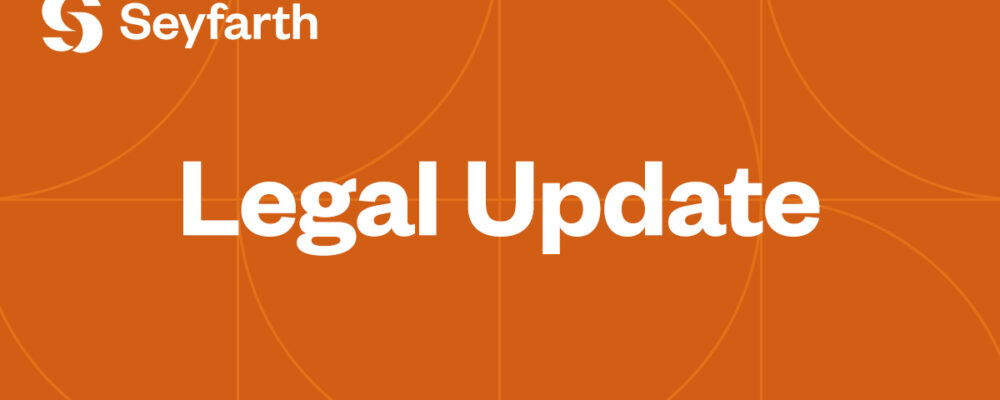UK Skilled Worker Visa – Significant Changes
A major update to the UK immigration rules was published on 14 March 2024. The new rules will become effective on 4 April 2024. Notably, these new rules will affect a large number of employers and their employees who need UK work visa sponsorship.
Transitional arrangements apply until 3 April 2030 for Skilled Workers whose Certificate of Sponsorship is assigned before 4 April 2024 and who have maintained continuity of permission as a Skilled Worker since that time. The most significant changes are as follows:
Increases to salary requirements
Significantly, there are several salary increase requirements that are coming into force for Skilled Worker applicants, and some of these will also be applicable to any existing visa holders as part of the transitional arrangement.
- General salary threshold increase: As previously announced and reported, the general salary threshold is now increased from £26,200 to £38,700 per annum.
- Going rates salary threshold increases: Occupation-specific salary thresholds or ‘going rates’ to the median salary for each type of role are also updated. New thresholds have increased substantially, from the 25th percentile to the 50th percentile (median), with limited exceptions for national pay scale occupations and Health and Care occupations not on a national pay scale. This jump in the salary requirements for sponsored employees can cause many employers to re-assess existing salary ranges for all employees to achieve fair compensation across all workforce.
- Updates to the going salary rates for occupations on a national pay scale and Health and Care occupations not on a national pay scale: These are in line with the latest data from the Office for National Statistics (“ONS”) and/or the latest national pay scale data.
- For those who are covered under the transitional arrangements: A general threshold based on the 25th percentile will apply, but it increases for individuals with Certificate of Sponsorship assigned on or after 4 April from £26,200 to £29,000 pa. This is to account for inflation.
- Consequential changes to Senior or Specialist Workers in the Global Business Mobility routes: The general salary threshold is being updated from £45,800 to £48,500 per annum, and going rates are being updated using the latest ONS pay data.
Removal of Shortage occupation list
The Shortage Occupation List (“SOL”) is replaced by an Immigration Salary List (“ISL”) comprised of roles where “the Government thinks it is sensible to offer a discounted salary threshold” according to the Explanatory Memorandum. The list is more limited than the previous Shortage Occupation List, and includes only 21 occupations. Of these 21 occupations, 18 are recommendations for the UK-wide ISL and 3 recommendations for the Scotland-only ISL.
The list is shorter because it takes into account the higher Skilled Worker salary threshold requirements coming into force on 4 April 2024 and the removal of the 20% discount applied to job roles on the SOL.
The main benefit to employers sponsoring a worker in a role on the new ISL is a lower general salary threshold of £30,960 instead of £38,700. However, the ISL reduction will not apply to the going minimum rates which still need to be satisfied and are being increased.
Updates to ONS Skills Occupational Codes system
The Home Office is also adopting the new Office for National Statistics (ONS) Skills Occupational Codes (“SOC”) 2020 coding system, replacing the existing ONS SOC 2010 coding system. This will mean changes to some codes and employers having to refresh decisions on which code is most suitable in some cases.
In addition to the updated job types coding system, the salary going rates will increase from 25thpercentile to 50thpercentile. This means that, in actual practice, employers will need to assess each existing sponsored and new role under the new salary threshold.
Below, we present a table with examples of the codes most commonly used by our clients:
|
Existing SOC 2010 code |
New SOC 2020 code |
Current going salary minimum rate |
New going salary minimum rate |
New going salary minimum rate for existing SW visa holders |
|
2136: Programmers and software development professionals |
2134: Programmers and software development professionals |
£34,000 |
£49,400 |
£36,300 |
|
2135: IT business analysts, architects, and systems designers |
2133: IT business analysts, architects, and systems designer |
£37,600 |
£51,700 |
£39,300 |
|
2139: Information technology and telecommunications professionals not elsewhere classified. |
2136: IT quality and testing professionals |
£32,100 |
£39,900 |
£31,100 |
|
3131: IT operations technicians |
3131: IT operations technicians |
£24,700 |
£31,100 |
£25,200 |
|
3534: Finance and investment analysts and advisers |
2422: Finance and investment analysts and adviser |
£28,600 |
£40,600 |
£32,100 |
|
2423: Management consultants and business analysts |
2431: Management consultants and business analysts |
£32,000 |
£48,000 |
£36,200 |
|
2424: Business and financial project management professionals |
2440: Business and financial project management professionals |
£39,100 |
£52,900 |
£41,100 |
|
1121: Production managers and directors in manufacturing |
1121: Production managers and directors in manufacturing |
£35,000 |
£51,500 |
£37,100 |
|
2123: Electrical engineers |
2123: Electrical engineers |
£39,300 |
£53,500 |
£43,900 |
|
2124: Electronics engineers |
2124: Electronics engineer |
£33,90 |
£49,900 |
£41,900 |
|
2127: Production and process engineers |
2125: Production and process engineers |
£32,000 |
£43,700 |
£35,700 |
|
3535: Taxation experts |
2423: Taxation experts |
£37,700 |
£46,300 |
£33,900 |
|
2423: Management consultants and business analysts |
2431: Management consultants and business analyst |
£32,000 |
£48,000 |
£36,200 |
|
3113: Engineering technicians |
3113: Engineering technicians |
£29,900 |
£39,800 |
£32,900 |
|
3541: Buyers and procurement officers |
3551: Buyers and procurement officers |
£26,300 |
£33,000 |
£27,500 |
|
3542: Business sales executives |
3552: Business sales executives |
£26,700 |
£34,500 |
£27,800 |
Retention of existing reduced rates
- New Entrant reduced rate
The Statement of Changes to the Immigration Rules has confirmed that the current salary reduction arrangement for new entrants will continue after 4 April 2024. The general salary threshold for new entrants will be 20% lower than the general salary threshold, with a new level of £30,960 and £23,200 for Healthcare roles.
A new entrant will also still benefit from a 30% reduction on the going rate. Employers will need to be aware that there will be circumstances where the discounted going rate will be higher than the lowered general salary threshold.
The new rules have also confirmed that the a worker who relies on the new entrant threshold will still only be able to apply for the maximum stay of 4 years, which will include time spent in the UK as a Skilled Worker, Graduate, or Tier 2 visa holder. If a new entrant wants to therefore extend his or her visa, the entrant must be paid at the higher salary threshold at this point.
- PhD reduced rate
Workers who hold a PhD in a field relevant to the occupational role, or who are in a STEM discipline, will continue to receive a reduction on the salary threshold. This will be as follows:
- Applicants with a PhD relevant to their job will need to be paid a salary above the general salary threshold of £34,830 and a 10% reduction on the going rate for their role (£26,100 for Healthcare roles).
- Applicants with a PhD in a STEM discipline will need to be paid a salary of £30,960 and a 20% reduction on the going rate for their role (£23,200 for Healthcare roles).
Expansion of supplementary employment provisions
Skilled Workers are permitted to undertake supplementary employment for up to maximum of 20 hours per week, provided they remain working for their sponsor in their sponsored role. Currently, the provisions allow workers to only take up employment in the same occupation as the sponsored role, or in any occupation from the Shortage Occupations list,
By contrast, the new rules will allow sponsored workers to take up supplementary employment in any role that is eligible for the Skilled Worker route. This means more Skilled Worker migrants can take up supplementary employment in the UK.
Importantly, this liberalization does not apply to other sponsored workers on visas other than Skilled Worker to whom the supplementary employment condition applies. Their restrictions remain the same as before.
Spouse and partner route changes
The minimum annual income requirement to qualify under the Appendix FM as a spouse or unmarried partner is being increased from £18,600 to £29,000. A timeline for further increases is not yet specified, but the government statement notes that it will increase to approximately £34,500 at an unspecified time later in 2024 and finally to approximately £38,700 “by early 2025.”
In positive changes, the requirement to have additional income for children is removed and is no longer required. The threshold above which savings may count towards meeting the minimum income requirement remains at £16,000. Thus, the minimum savings amount is now at £88,500 (up from £62,500).
The changes to the Partner route take effect for applications made on or after 11 April 2024. Transitional arrangements are made for individuals who have made their first successful application as a fiancé(e), proposed civil partner, or partner before 11 April 2024. They must meet the existing financial requirements that apply before the rules are updated.
Increased number of UK compliance audits
The latest Sponsorship Transparency Data has been published by the Home Office for the final quarter of 2023.
It shows that in the fourth quarter of 2023, there was a considerable increase in the number of licence suspensions and revocations. Specifically, 241 sponsors had their Skilled Worker licences suspended (up from just 91 in the previous quarter), and 105 sponsors had their licence revoked (up from 62 in the previous quarter). Whilst these numbers remain relatively small compared to the number of sponsors overall (at 84,730 licenses for Tier 2 routes), these large increases are indicative of the increased enforcement and compliance action we have seen across all sectors and clients.
This data highlights the increasing complexity of the sponsorship regime and the need for businesses to seek advice, be prepared, and tread carefully. Businesses should be reminded regularly that, as soon as they are registered as a licence holder, they carry an increased responsibility with regard to reporting and record-keeping.
The main duties of which all licence holders should be aware include:
- Reporting any important changes to the company’s details (such as change of address, change of name, or change in immediate corporate ownership).
- Ensuring all contact details, in particular for the Authorising Officer, are up to date on the licence, and that the names of any people who left the business be replaced with a new existing employee.
- Reporting any changes to the sponsored employee’s employment conditions (such as change of role or job title, decreases in salary, maternity/paternity or other permitted leave from work of greater than 4 weeks’ duration, the end of employment, or a move to a new work location).
If you are unsure, or wish to learn more about the UK immigration sponsor licence compliance, please reach out to our Global immigration team.
Review of Graduate route by 14 May 2024
The Migration Advisory Committee (MAC) has been commissioned to make yet another ‘rapid review’ of the Graduate route, and its report is due to be published prior to 14 May 2024. Employers should plan for potential restrictions to this route. It is also possible that this upcoming report may signal a suspension of the Graduate route.
At the moment, a Graduate visa route allows Student visa holders to remain in the UK for a period of two years after completing their undergraduate, postgraduate, or doctoral degree in the UK. The route is unsponsored and has wide work rights, only excluding work as a professional sportsperson.
The UK government has raised questions about whether the route is meeting its intended objectives, as well as more broadly seeking ways to reduce net migration. As a result, it is possible that the upcoming Rules changes may place additional restrictions on the use of the route (potentially limiting it to graduates from specific institutions or from specific disciplines, for example). The route could also be abolished entirely, and there is a precedent for this already with the closure of previous Tier 1 (Post-Study Work) route.
“With approximately 900 lawyers across 17 offices, Seyfarth Shaw LLP provides advisory, litigation, and transactional legal services to clients worldwide.”
Please visit the firm link to site






